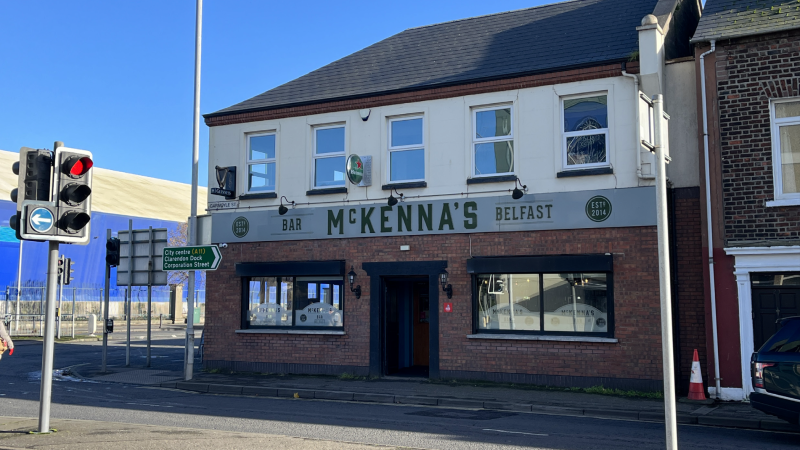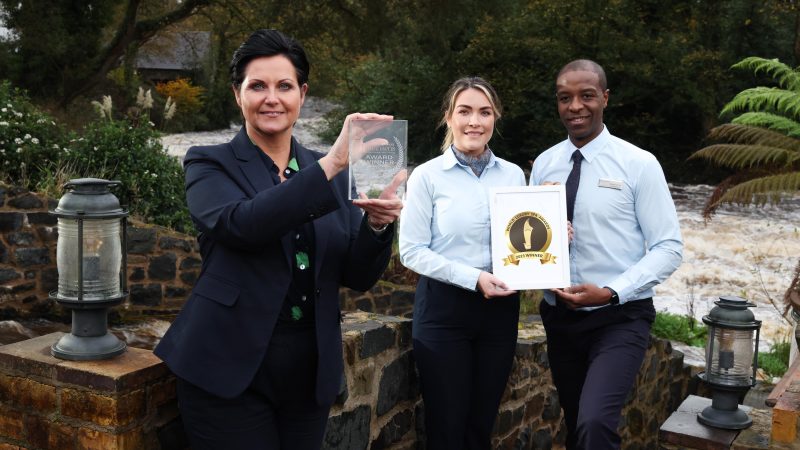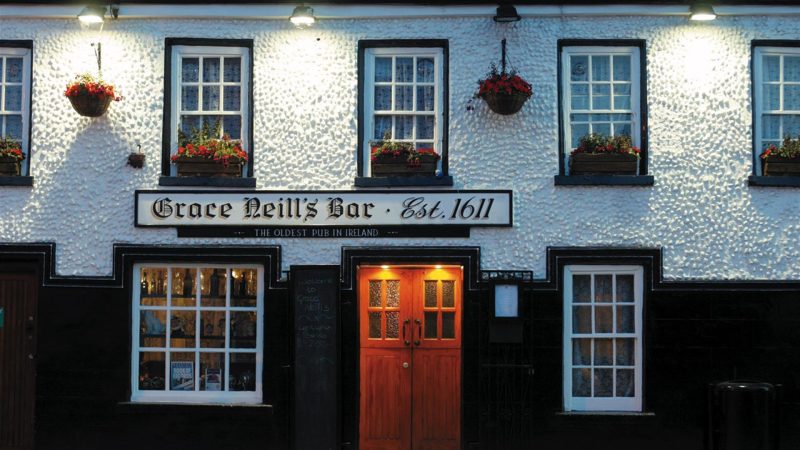Brand NI needs a focus on food and drink

Declan Billington of the NI Food and Drink Association believes that we can boost the levels of produce we are currently exporting by building a new image of Northern Ireland that capitalises on our reputation as a clean, green environment. It should be less about price, he says, and more about quality and taste.
Declan Billington, the chairman-elect of the Northern Ireland Food and Drink Association (NIFDA), has a clear perception of the value of the agri-food sector in Northern Ireland in terms of its potential as a driver for both exports and tourism growth.
Speaking to this magazine recently, Mr. Billington called for more support for the industry and said that he believed we should be capitalising to a much greater extent on our reputation for producing natural, wholesome food.
The agri-food sector in Northern Ireland is a major employer, providing around 27,000 jobs in food and drink processing here. A recent estimate by the Agri-Food Strategy Board (AFSB) indicated that every one of those positions creates an additional two jobs elsewhere in the local economy.
So it’s a sector with clout and as Mr. Billington prepares to assume the chairman’s role from its current incumbent, Dale Farm’s David Dobbin, next year – ironically, the Year of Food – he’s called for the establishment of a positive Northern Irish brand that will convey a fresh emphasis on the province’s fresh food and drink credentials.
Mr. Billington (50), is currently chief executive of John Thompson and Sons Ltd., Northern Ireland’s largest animal feed processor. A native of Holywood in County Down, he enjoyed a varied career background in corporate finance and engineering before moving to Thompson’s in 2005.
Since 2003, he has also been heavily involved in business representation, particularly with the CBI, which he served as NI chairman between 2005 and 2008 and the Northern Ireland Grain Trade Association (NIGTA), of which he is also a past-president.
It was through his association with NIGTA – which is affiliated to NIFDA – that Mr. Billington began to consider in earnest the important economic impact of food and drink production in Northern Ireland.
In 2013, the Agri-food Strategy Board launched its Going for Growth strategy document – a series of 118 recommendations aimed at developing the potential of the sector. That report grew from work initially carried out by NIFDA, whose members had long realised the potential of the NI economy, particularly its rural element. In 2010, NIFDA had produced a short report which highlighted the potential for growth within the local food and drink sector at that time, although it argued that a clear and coherent strategy was required if that promise was to be realised.
That report led directly to the formation of the AFSB, now the foremost authority on agri-food matters here.
“The whole sector is of huge benefit to our export industry and we need to be shouting about it a lot more than we do,” says Mr. Billington. “We need to grow our export industries in Northern Ireland and agri-food has, for generations, successfully contributed a considerable amount in terms of exports. But we could achieve more with the right levels of support.”

Mr. Billington considers the Going for Growth strategy to be one of the most important developments in agri-food here for many years, yet he is concerned on a number of fronts, most notably the increasingly desperate plight of the farming industry in Northern Ireland which has been highlighted recently by the impact of plummeting milk prices at the farm gate.
There’s a growing disparity between life in Northern Ireland’s rural and urban regions, says Mr. Billington, yet the goal of a balanced economy requires a sustainable lifestyle for everyone, so there’s a pressing need to grow rural industry:
“There’s no other industry that’s present in every town in NI, only agrifood,” he tells LCN. “If we’re able to develop better markets for this produce, that’s going to provide more opportunities for farmers to help the rural economy to thrive. Northern Ireland wants to be a region that is economically viable, it wants to be able to export its goods to high-value economies and agri-food helps us do that, but we need to re-energise the rural economy.”
Driving exports will be a critical aspect of that task and NIFDA sees the Year of Food promotion in 2016 as a valuable opportunity to garner fresh orders for Ulster produce:
“Perception is critical. If you’re selling food, you have to sell it on the basis of value and quality, not cost,” he adds. “We need to be talking about produce from Northern Ireland as an experience and highlighting its most positive features.
“If you take the Chinese people, there are only two things that the majority of them know about Ireland, green grass and River Dance. But that image is extremely positive and natural and the Year of Food in 2016 is an opportunity for us to re-emphasise that and tie it in to the products that go with it, so the restaurant and catering trade will have the opportunity to boost tourism with what they are doing.”
Mr. Billington says that the next two or three years in Northern Ireland will be about “laying the foundations for change”:
“I think that there will be a huge amount of strategic change going on in NI. In the next five to 10 years, our vision for Northern Ireland would be that anyone looking at it would see it as a great place for food. It’s natural, it’s healthy, it’ safe and great quality. And we need to move from being a community that sells at the cheapest price to one where people want to buy because what is on offer is natural and tastes good.
“We need to build a positive brand for NI, so over the next couple of years we will be looking at the positive things that we do and starting to build our brand around that.
“There are lots of changes that lie ahead, I feel, and I think survival will be down to the best game plan to get through, but I do think that we have to move away from a position where we sell our goods too cheaply and demand more of a premium for a quality product. We may be a small place, but that means that we can also be agile and we can give ourselves a first-mover advantage.”

2 – The Kane family’s Broighter Gold rapeseed product is typical of the sort of healthy indigenous product that Mr. Billington believes we should be making more of.
3 – Charlie Cole, a goat farmer and seaweed entrepreneur from Ballycastle, is typical of the sort of innovative producer that could do much to boost NI’s reputation on international food markets.







